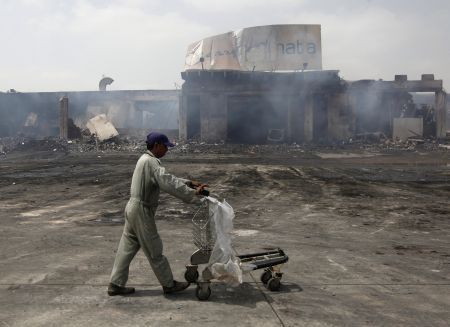 The brazen Karachi airport attack clearly suggests the role of the Pakistani Taliban’s sleeper cells in the city that must have planned it during the interval when their central leadership was busy talking peace with the government, a media report said on Thursday.
The brazen Karachi airport attack clearly suggests the role of the Pakistani Taliban’s sleeper cells in the city that must have planned it during the interval when their central leadership was busy talking peace with the government, a media report said on Thursday.
Background interviews with current and former intelligence and law enforcement officials revealed that real success against militants was not possible till the elimination of their sleeper cells. The cells provided shelter, weapons, explosives, transport and even intelligence to their comrades responsible for carrying out attacks, the Dawn reported.
The report said the attack on the airport was a work of planning that must have begun weeks if not months before its execution and it appeared the Tehreek-e-Taliban leadership was using the time it had bought through a ceasefire to put the finishing touches to the planning of the airport attack.
“It’s not that simple that one fine day 10 men find a weak spot in the security and sneak into the airport, fire at security personnel and get killed after a pitched battle while trying to blow an aircraft,” said an intelligence official. “Even a common man can understand that there must be a mastermind (behind such attacks) but what they don’t understand is the fact that there are people, a lot of people in fact, who are living in their midst like normal people but actually work for terrorist groups,” he said.
The official said the banned TTP, which claimed responsibility for the airport attack, has been sending its associates to Karachi with the single objective to blend with the local population and settle in their midst without arousing suspicion.
TTP militants were already living and operating in the city with active support of their like minded sectarian and jihadi groups.
During the time of their former slain chief Baitullah Mehsud, TTP primarily used the sleeper cells to infiltrate private security firms in Karachi to collect information, which it used to rob banks, cash vans and moneychangers, said the officials.
The officials said that it could not be ruled out that some Taliban loyalists managed to get some low-level jobs in sensitive places, where background checks were not at all carried out.
Image: A man pushes a trolley past the damaged building on the tarmac of Jinnah International Airport. Photograph: Athar Hussain/Reuters











 © 2025
© 2025